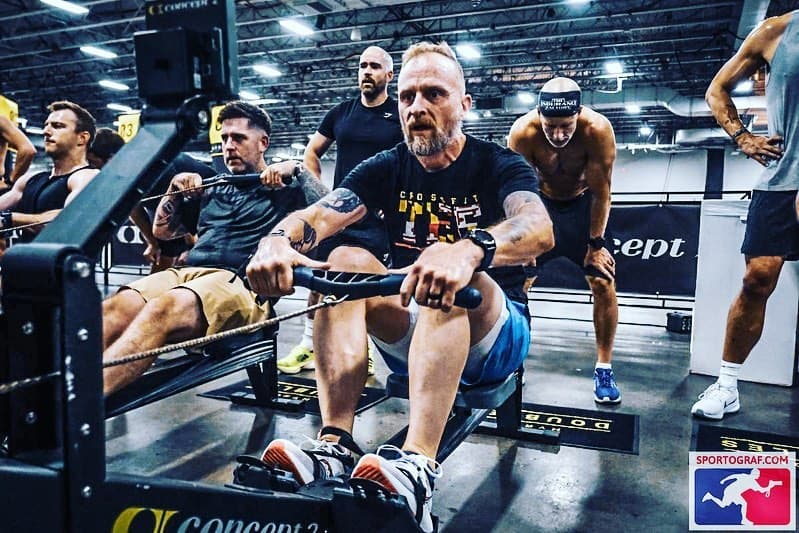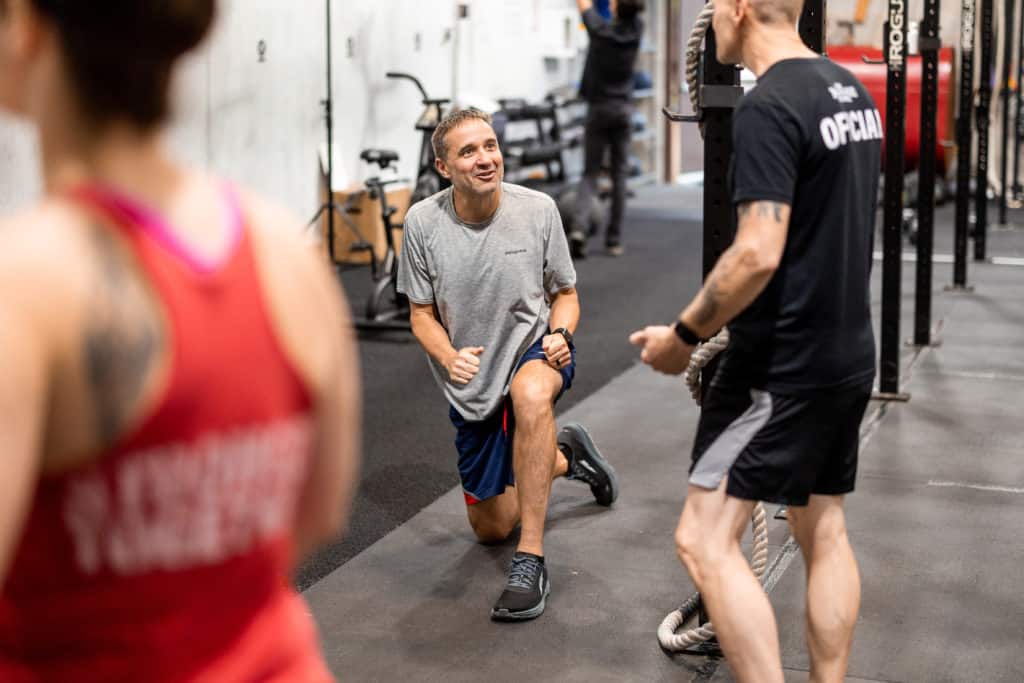Protein Needs for CrossFit Masters’ Athletic Performance

As a CrossFit Masters athlete over the age of 35, optimizing your protein intake is critical for muscle growth, performance, and recovery. Consuming adequate high-quality protein can help Masters maintain and build lean muscle mass even as they age. Read on to discover the best protein for CrossFit Master Athletes.
Some key points on protein needs for CrossFit Masters:
- Higher protein requirements than general population due to demands of CrossFit training
- Recommended intake of 1.2-2.0 g/kg bodyweight daily
- Whey, casein, meat, eggs are high-quality protein sources
- Protein timing around workouts enhances protein synthesis
- Need to optimize protein supplementation strategies
Adequate protein intake combined with CrossFit training leads to improvements in:
- Muscle hypertrophy
- Muscle strength
- Power output
- Metabolic conditioning
- Body composition
- Performance in WODs
- Recovery between training sessions
Consuming sufficient high-quality protein is key for CrossFit Masters athletes to maintain fitness and continue performing at a high level. Strategies like protein shakes and amino acid supplementation can further boost results.
Protein Requirements for CrossFit Masters Athletes
CrossFit Masters have higher protein needs compared to the general population due to the intense demands of CrossFit training. Consuming adequate protein is critical for muscle growth, performance, and recovery.
| Recommended Protein Intake |
|---|
| – 1.4-2.0 g/kg bodyweight is the recommended daily protein intake range for CrossFit Masters athletes |
| – Protein requirements differ based on weight, sex, and training volume |
| – Heavier athletes need more protein to support muscle mass |
| – Men may need more protein than women due to body composition |
| – Professional athletes need more protein than recreational due to training intensity |
High-quality protein sources:
- Lean meats
- Poultry
- Fish
- Eggs
- Dairy
- Legumes
- Tofu
- Tempeh
- Protein powders
Consuming a variety of protein sources ensures complete amino acid profile to optimize protein synthesis.
Protein timing around workouts also enhances the body’s ability to build and repair muscle tissue. Consuming protein pre- and post-workout is recommended.

5 Best Sources of Protein for CrossFit Masters
To maximize muscle protein synthesis, CrossFit Masters need to consume high-quality, complete proteins that provide all the essential amino acids. The best protein sources include:
- Whey protein
- Fast digesting protein ideal for post-workout
- High in branched-chain amino acids (BCAAs) like leucine
- Boosts protein synthesis
- Casein protein
- Slow digesting protein prevents muscle breakdown
- Ideal to consume before bed
- Provides sustained release of amino acids
- Milk proteins (whey and casein)
- Provide complete protein profile
- Meat, poultry, fish, eggs
- Animal proteins are high in BCAAs
- Support muscle growth and repair
- Legumes, nuts, seeds
- Plant-based proteins can complement animal sources
- Soy and pea proteins are higher quality options
Consuming a variety of lean protein ensures maximal stimulation of protein synthesis and recovery. Whey protein is ideal post-workout while casein prevents muscle breakdown at night. Aim for 1.4-2.0 g/kg from high-quality proteins.
Protein Supplementation Strategies for CrossFit Masters
In addition to whole food sources, supplements can further enhance muscle protein synthesis and recovery for CrossFit Masters:
- Whey protein powder
- 20-40 grams post-workout
- Stimulates protein synthesis
- Opt for whey isolate or hydrolysate
- Casein protein powder
- 20-40 grams pre-sleep
- Provides sustained release of amino acids
- Prevents muscle breakdown overnight
- BCAA supplements
- 5-10 grams during training
- Leucine, isoleucine and valine
- Reduce muscle damage and soreness
- EAA supplements
- 10 grams post-workout
- Essential amino acids
- Stimulate muscle protein synthesis
Additional ergogenic aids:
- Creatine
- Beta-alanine
- Citrulline
- Caffeine
- Beetroot juice
Consuming whey protein immediately after training and casein protein before bed provides the ideal protein timing strategy. BCAAs and EAAs also stimulate muscle growth during and after exercise.
Additional Nutrition Strategies for CrossFit Masters
In addition to sufficient protein intake, CrossFit Masters need to focus on overall nutrition to support performance and recovery:
- Carbohydrates
- Fuel high intensity workouts
- Replenish glycogen stores post-workout
- Healthy fats
- Omega-3s reduce inflammation
- Support hormone production
- Micronutrients
- Vitamins and minerals
- Found in fruits, vegetables, supplements
- Hydration
- Drink water before, during and after training
- Replace electrolytes lost in sweat
Recovery strategies:
- Quality sleep
- Rest days
- Soft tissue work, stretching
- Cold water immersion
Adequate protein combined with carbs, fats, hydration, micronutrients, and proper recovery allows CrossFit athletes to continue performing at a high level while minimizing risk of injury or overtraining.
FAQs
Q: What is the importance of protein supplements for CrossFit athletes?
A: Protein supplements are essential for CrossFit athletes as they aid in muscle recovery and growth, improve athletic performance, and support overall health.
Q: What are the different types of whey protein?
A: The different types of whey protein include whey protein concentrate, whey protein isolate, and whey protein hydrolysate.
Q: How much protein should a CrossFit athlete consume?
A: The protein intake for CrossFit athletes may vary depending on factors such as body weight, training intensity, and goals. However, a general guideline is to consume 1.2-2 grams of protein per kilogram of body weight.
Q: Can protein supplements help in building muscle?
A: Yes, supplements can aid in building muscle as they provide the necessary amino acids required for muscle growth and repair.
Q: What are the best protein supplements for CrossFit athletes?
A: Some of the best proteins for CrossFit athletes include whey protein isolate, whey protein hydrolysate, and casein protein.
Q: How do performance supplements benefit CrossFit athletes?
A: Performance supplements such as creatine, BCAAs, and beta-alanine can improve endurance, increase muscle strength, reduce muscle soreness, and enhance overall athletic performance.
Q: Is creatine a recommended supplement for CrossFit athletes?
A: Yes, creatine is a widely used and recommended supplement. It helps in increasing strength, power output, and muscle mass.
Q: Can protein supplements improve endurance performance?
A: Yes, supplements can help improve endurance performance by supporting muscle recovery, reducing muscle protein breakdown, and providing the necessary fuel for long-duration workouts.
Q: Are there any dietary supplements specifically designed for CrossFit?
A: Yes, there are several dietary supplements specifically designed for CrossFit athletes. These supplements are formulated to support the unique demands of CrossFit workouts and aid in performance, recovery, and muscle building.
Q: How do protein supplements contribute to overall health?
A: Supplements provide essential amino acids that are crucial for various bodily functions, including muscle repair, immune system support, and hormone synthesis, thereby contributing to overall health and well-being.
Conclusion and Summary
Optimizing protein intake is critical for CrossFit athletes over age 35 to maintain muscle mass, enhance performance, and accelerate post-workout recovery.
- Aim for 1.4-2.0 g/kg bodyweight from high-quality sources
- Whey, casein, meat, dairy provide complete proteins
- Time protein consumption pre- and post-workout
- Protein supplements like whey further boost muscle protein synthesis
Adequate protein combined with overall sound nutrition, smart programming, and proper recovery allows athletes to continue performing at a high level while minimizing overtraining and injury risk.
Key Takeaways:
- Higher protein needs than general population
- 1.4-2.0 g/kg daily recommended
- Whey, casein, meat, dairy are top proteins
- Time protein pre- and post-training
- Supplements enhance results
- Balance training and recovery
Consuming sufficient high-quality protein while following an intelligent training and nutrition program enables CrossFit Masters athletes to achieve their fitness goals and remain competitive for years to come.



Comments are closed.